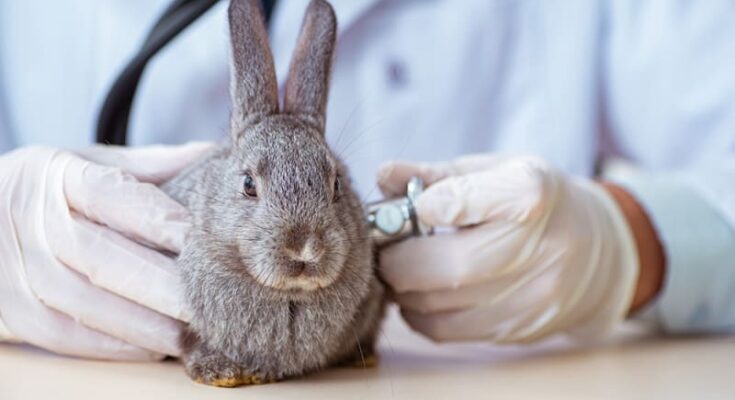Rabbit Care: A Complete Guide for Beginners
Rabbits are one of the cutest and most lovable pets you can have at home. They are soft, friendly, and full of personality. But just like any other pet, rabbits need proper care to stay happy and healthy. If you are planning to bring a rabbit into your home or already have one, this guide will help you learn how to take good care of your furry friend.
1. Choosing the Right Rabbit
Before getting a rabbit, it’s important to know what kind of rabbit will suit your lifestyle. There are many breeds of rabbits, from small ones like Netherland Dwarfs to larger ones like Flemish Giants. Some rabbits are calm and enjoy cuddles, while others like to be active and explore.
Ask yourself:
- Do you have enough space at home?
- Can you spend time daily with your rabbit?
- Are you ready for long-term care (rabbits can live 8–12 years)?
Once you are sure, adopt a rabbit from a shelter or buy from a trusted breeder.
2. Housing Your Rabbit
Rabbits need a safe and comfortable home. You can keep them indoors or outdoors, but indoors is safer because it protects them from weather, predators, and other risks.
Indoor Housing:
- Use a large rabbit cage or a playpen.
- The floor should not be wire because it hurts their feet. Use a soft mat or towel.
- Keep the cage in a quiet place where your rabbit feels safe.
Outdoor Housing:
- Use a strong wooden hutch with a waterproof roof.
- Make sure it is raised from the ground to stay dry and safe from predators.
- Provide shade in summer and warmth in winter.
Your rabbit also needs daily exercise outside the cage. Create a safe play area or let them hop around a rabbit-proofed room.
3. Feeding Your Rabbit
A healthy diet is very important for your rabbit’s life. Rabbits have a sensitive digestive system, so feeding them the right food is a must.
Main Foods for Rabbits:
- Hay (Most Important) – Hay should make up 80% of their diet. It helps their digestion and keeps their teeth healthy.
- Fresh Vegetables – Give leafy greens like spinach, kale, romaine lettuce, and cilantro. Avoid iceberg lettuce as it has little nutrition.
- Pellets – Good quality rabbit pellets can be given but only in small amounts.
- Fresh Water – Always keep clean, fresh water available in a bowl or water bottle.
Foods to Avoid:
- Chocolate, bread, rice, and sweets.
- Raw potatoes, onions, and garlic.
- Processed human food.
4. Grooming and Cleaning
Rabbits like to stay clean, and you should help them.
- Brushing: Rabbits shed fur often. Brush your rabbit once or twice a week to remove loose hair and prevent hairballs. Long-haired rabbits may need daily brushing.
- Nail Trimming: Trim their nails every few weeks to prevent overgrowth.
- Bathing: Rabbits usually don’t need baths. They clean themselves. Only give a bath if your rabbit is very dirty and cannot clean itself, and even then, use very little water.
Also, clean their cage or hutch daily. Remove soiled bedding and droppings. A clean space keeps your rabbit healthy and free from bad smells.
5. Health and Vet Care
Rabbits can get sick easily if not cared for properly. Regular vet checkups are important. Find a vet who has experience with rabbits.
Signs Your Rabbit May Be Sick:
- Not eating or drinking.
- Teeth grinding (a sign of pain).
- Runny nose or eyes.
- Diarrhea or no poop at all.
- Sitting in one place and not moving much.
If you see these signs, take your rabbit to a vet immediately.
Also, consider spaying or neutering your rabbit. It prevents unwanted breeding and also helps with behavior issues and health problems.
6. Exercise and Toys
Rabbits love to run, jump, and play. Exercise is very important for their health and happiness.
- Give them at least 3–4 hours outside their cage every day.
- Make sure the area is safe and free from wires or small things they can chew.
- Provide toys like cardboard boxes, tunnels, chew toys, and wooden blocks.
Rabbits also love digging and chewing because it’s their natural behavior. Give them safe things to chew on to keep their teeth healthy.
7. Social Needs and Handling
Rabbits are social animals. They love spending time with their owners and other rabbits.
- Talk to your rabbit gently so it gets used to your voice.
- Handle your rabbit carefully. Support its back and hold it close to your body. Never pick up a rabbit by its ears.
- Spend time sitting on the floor and let your rabbit come to you.
If possible, consider keeping two rabbits together so they have company. However, introduce them slowly and carefully because not all rabbits get along.
8. Litter Training
Yes, rabbits can be litter trained!
- Place a litter box inside the cage with paper-based or wood-pellet litter (avoid clay cat litter).
- Rabbits usually choose one corner to do their business, so place the box there.
- Give them hay near the litter box because rabbits like to eat and poop at the same time.
With patience, your rabbit will learn to use the litter box easily.
9. Rabbit-Proofing Your Home
Rabbits love to chew. Wires, furniture, and even walls are at risk.
- Cover electrical wires with plastic tubing.
- Keep household cleaners and harmful objects away.
- Block off areas you don’t want your rabbit to go.
Rabbit-proofing keeps your pet safe and your home undamaged.
10. Love and Patience
Taking care of a rabbit requires time, patience, and love. Rabbits are sensitive and can get scared easily. Give them time to trust you and feel safe.
Spend time playing, talking, and cuddling (if your rabbit likes it). With proper care and affection, your rabbit will become a loving and joyful part of your family.
Final Thoughts
Rabbits are amazing pets when cared for properly. They need space, good food, health care, and lots of love. If you provide them with a safe home, a healthy diet, and regular attention, your rabbit will live a happy and healthy life.
Caring for a rabbit may seem like hard work in the beginning, but once you build a routine, it becomes easy and enjoyable. Your rabbit will reward you with affection, funny moments, and unconditional love.



